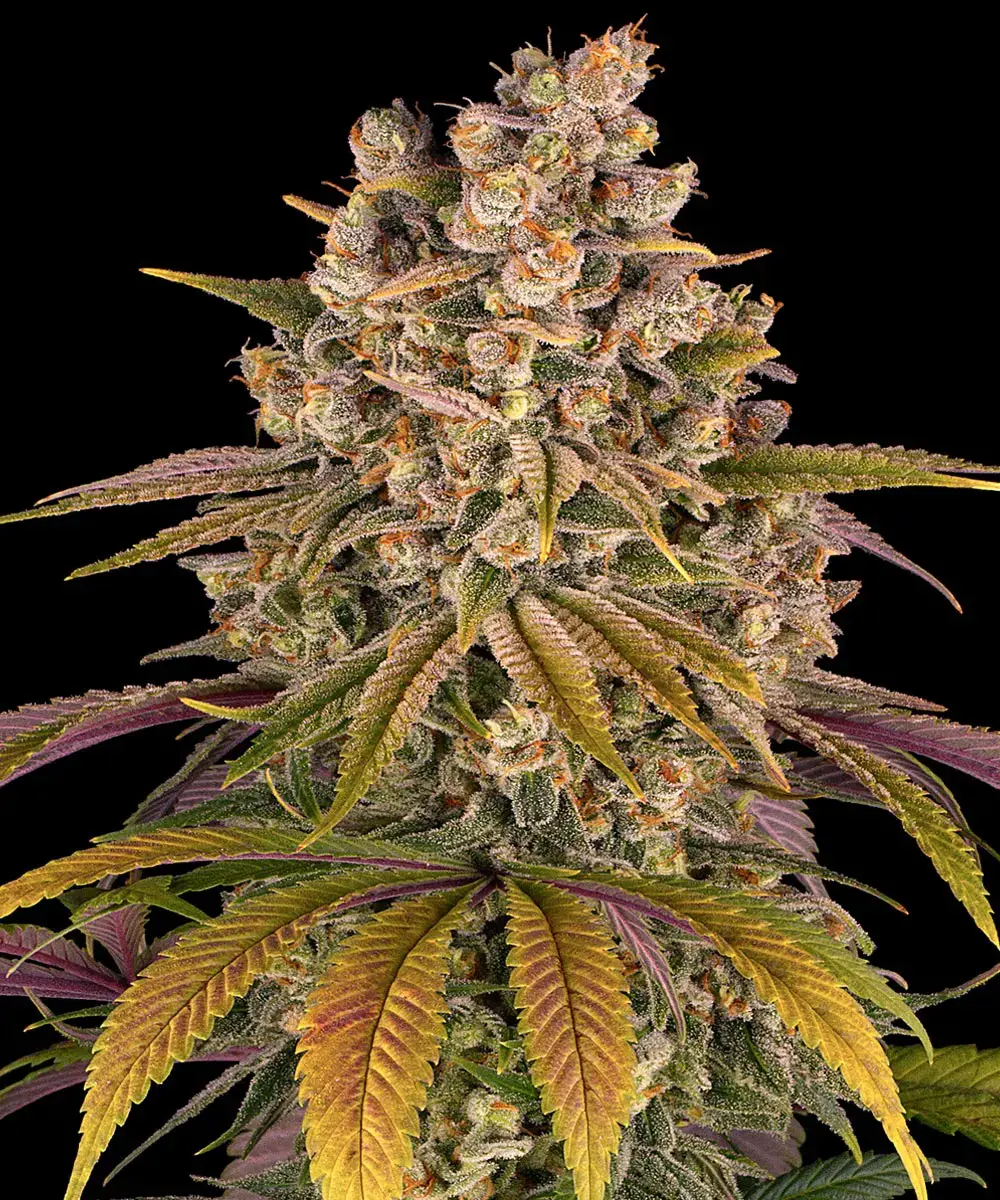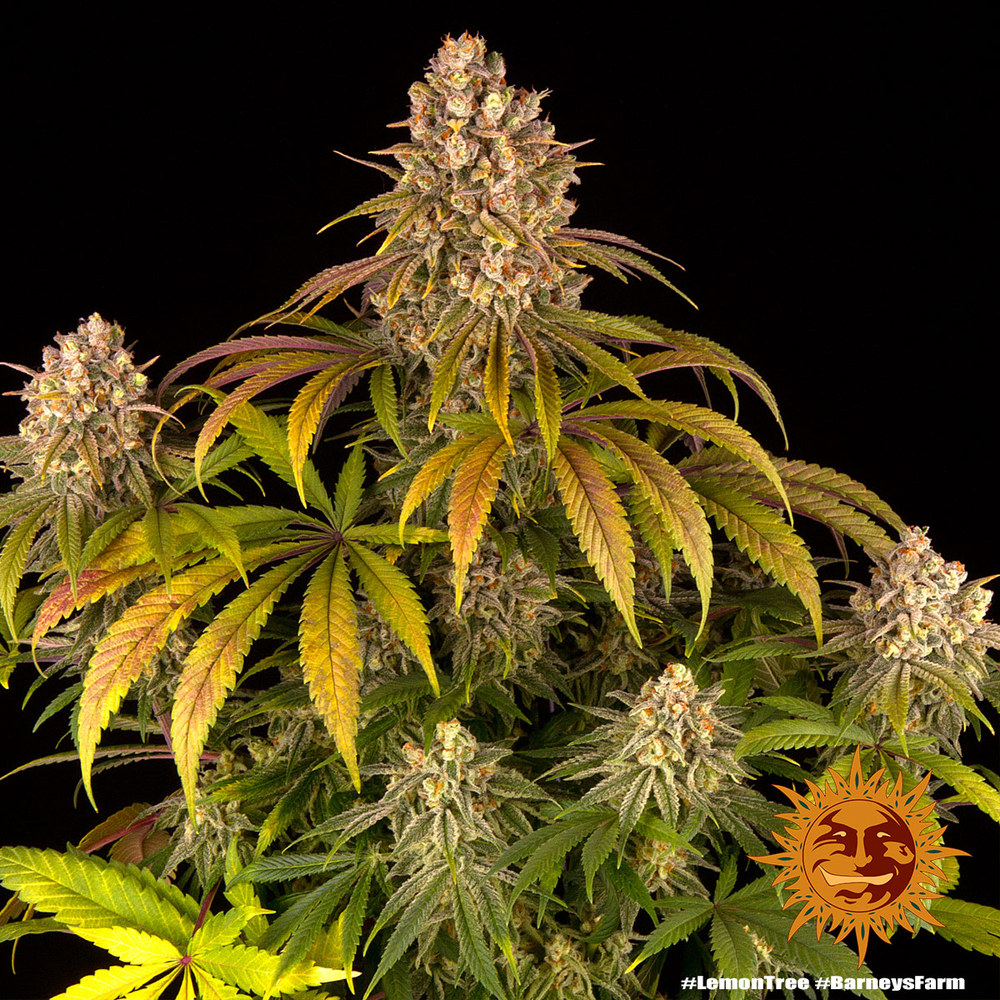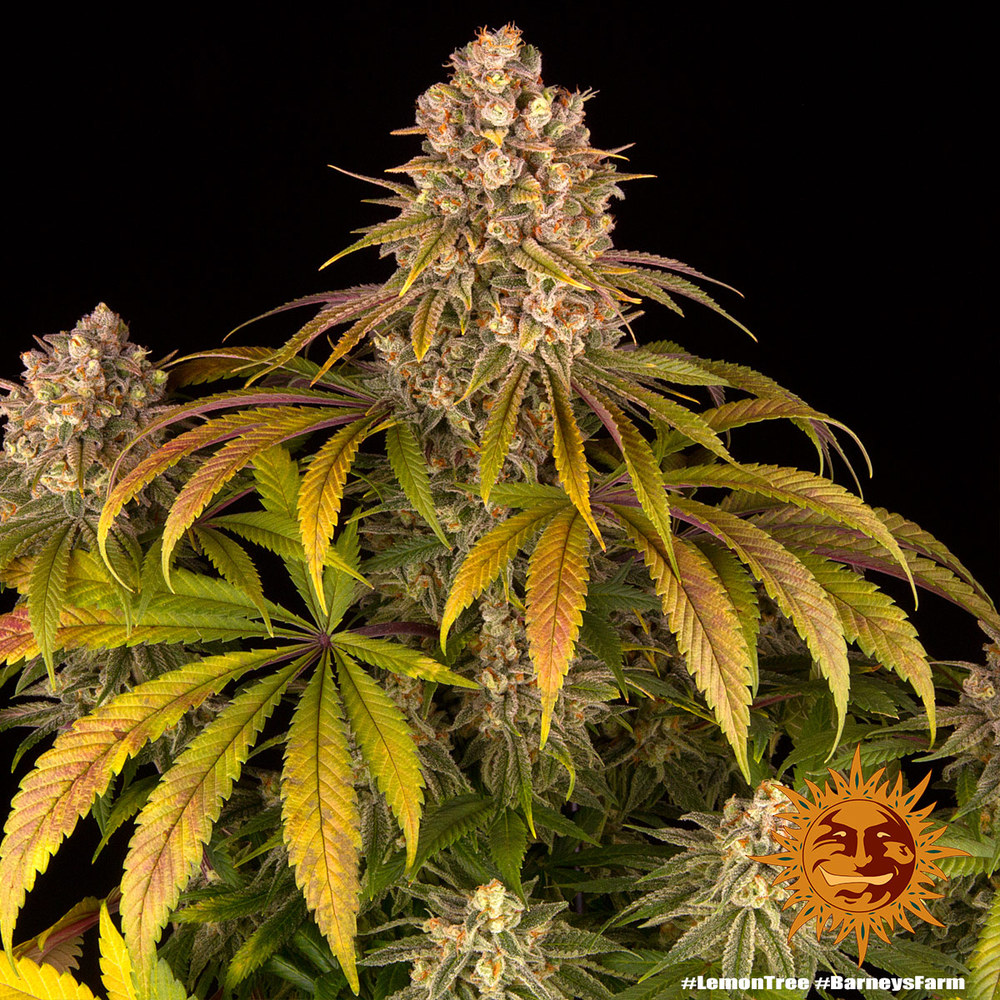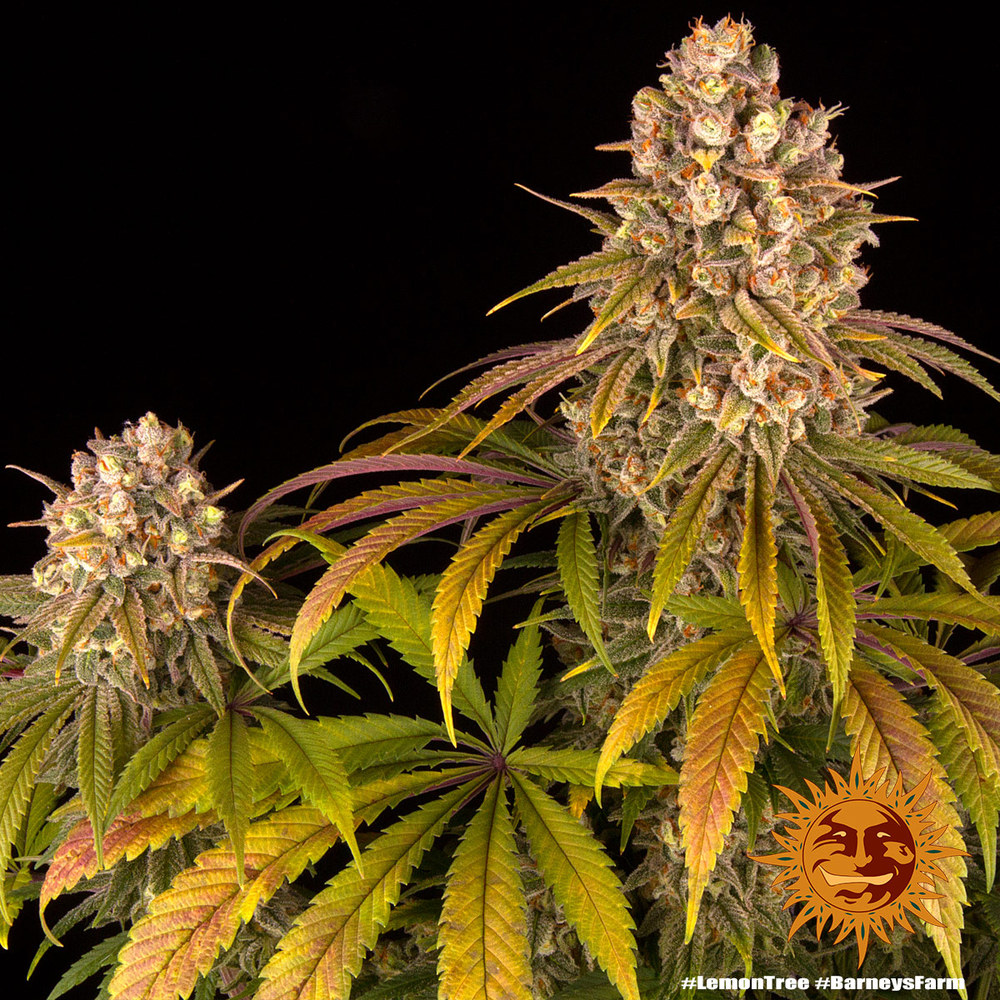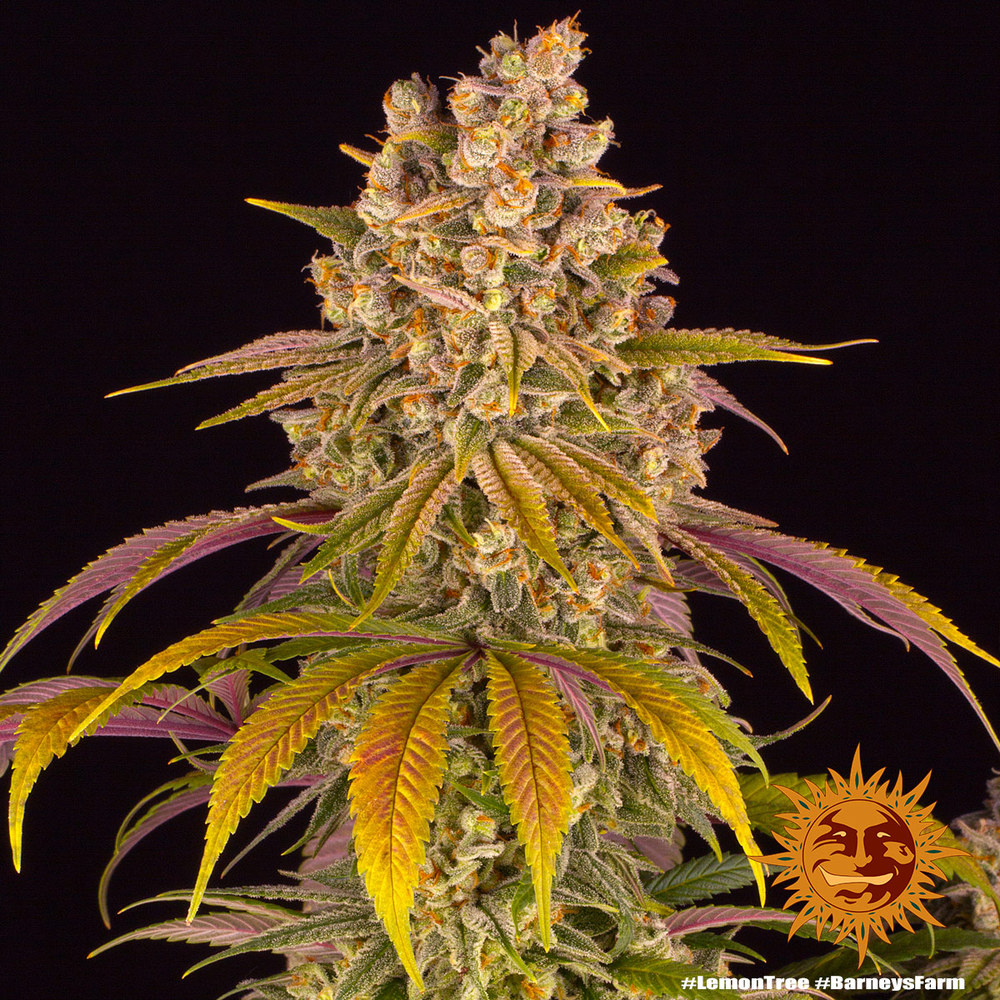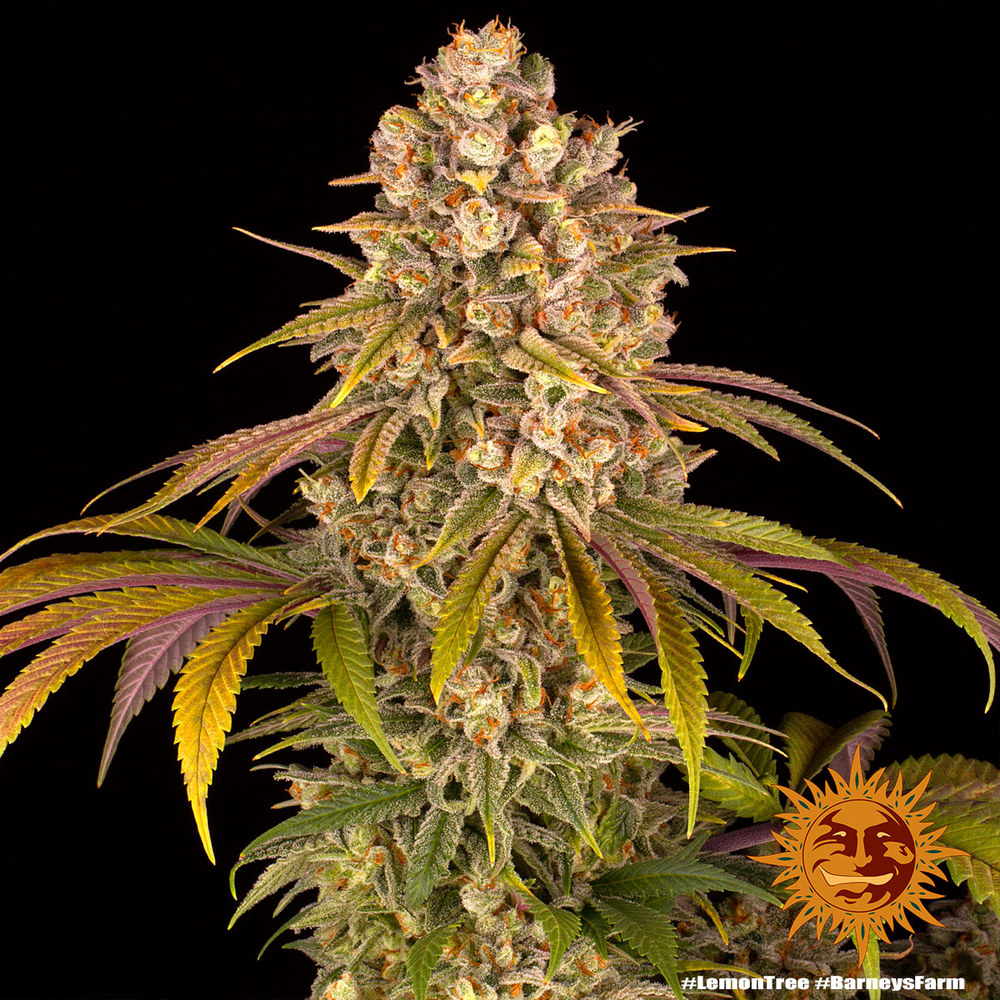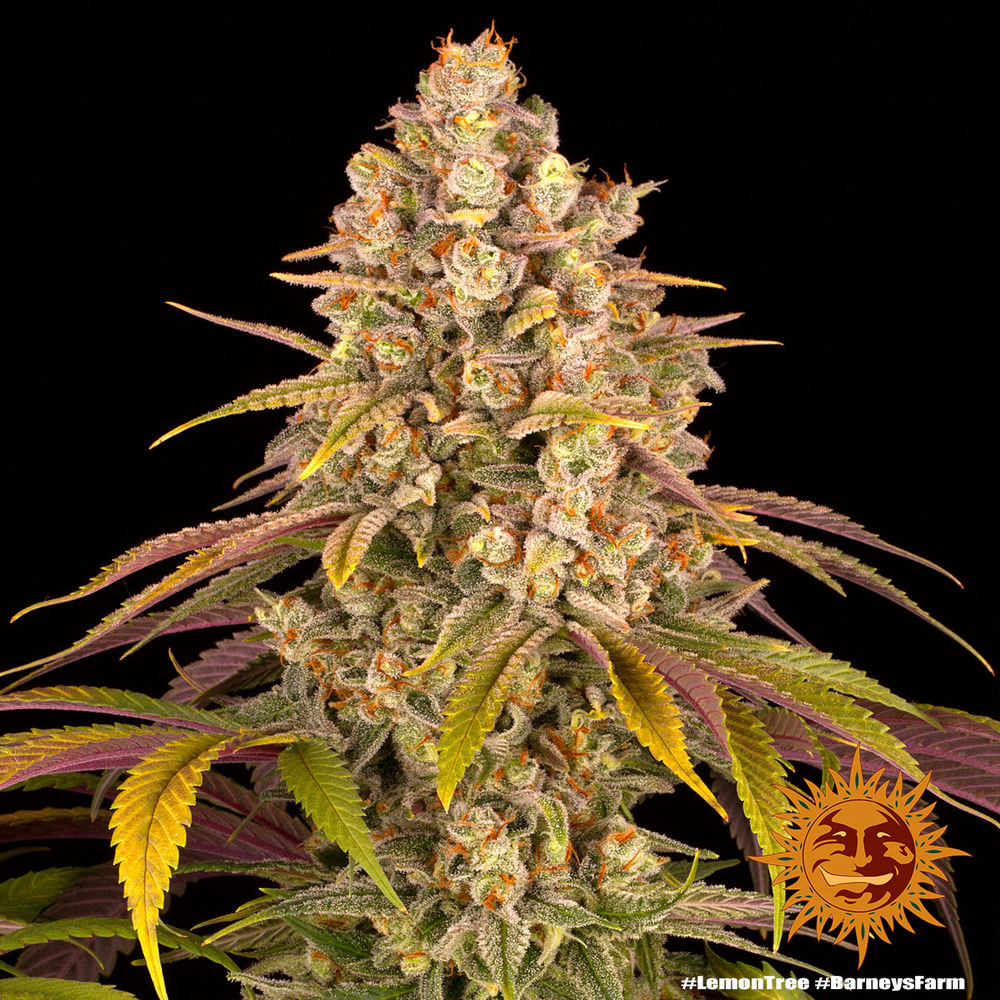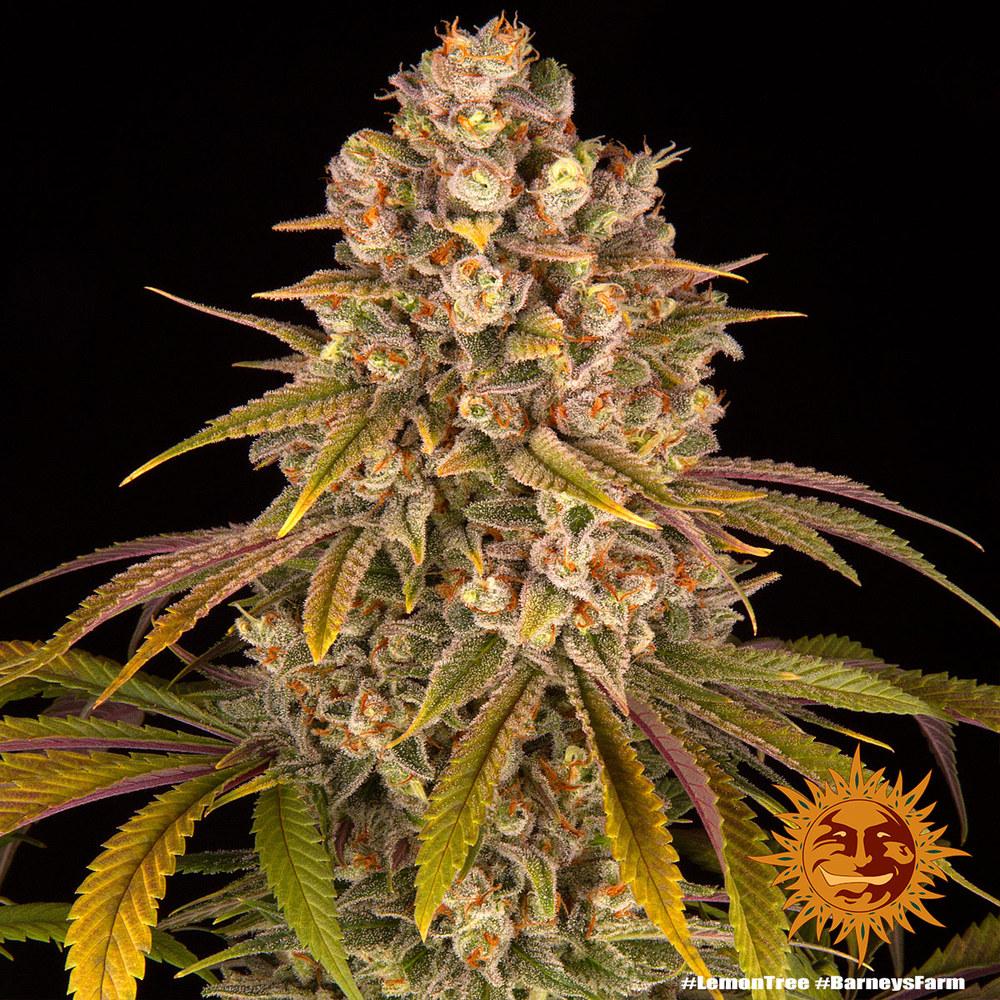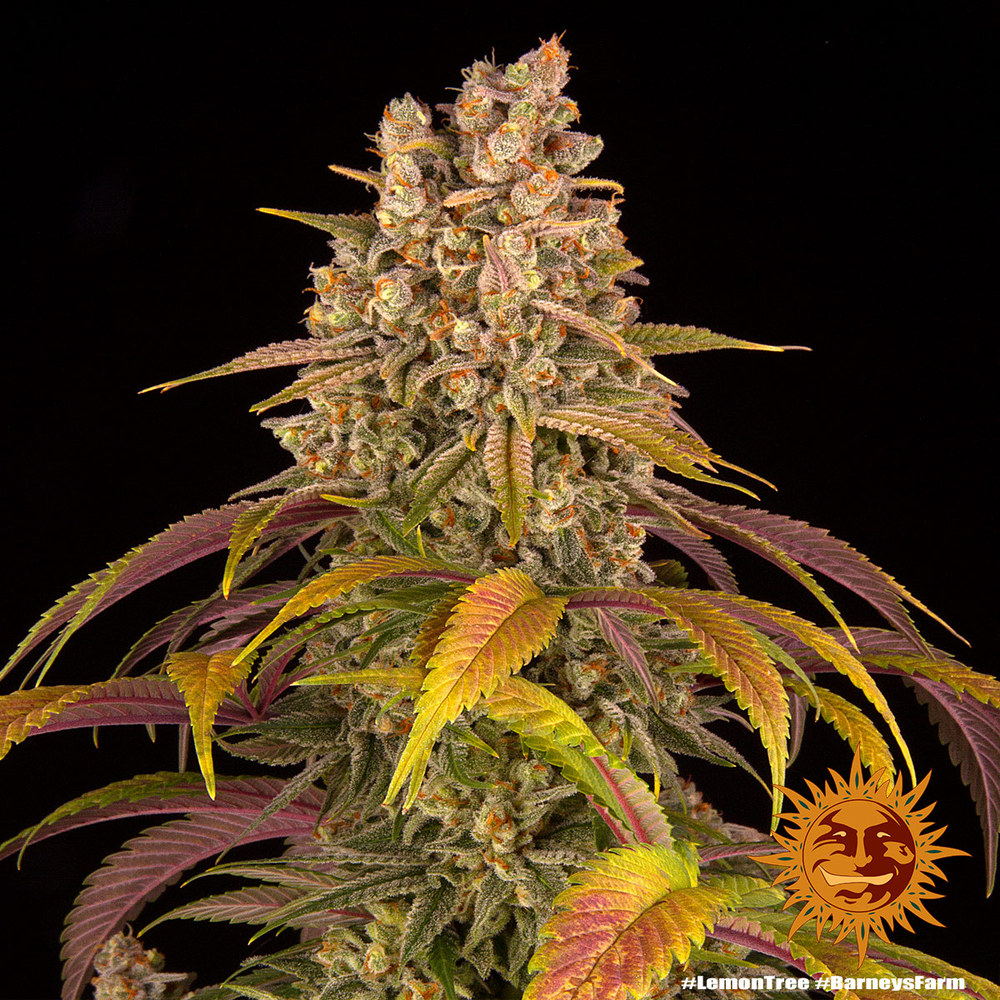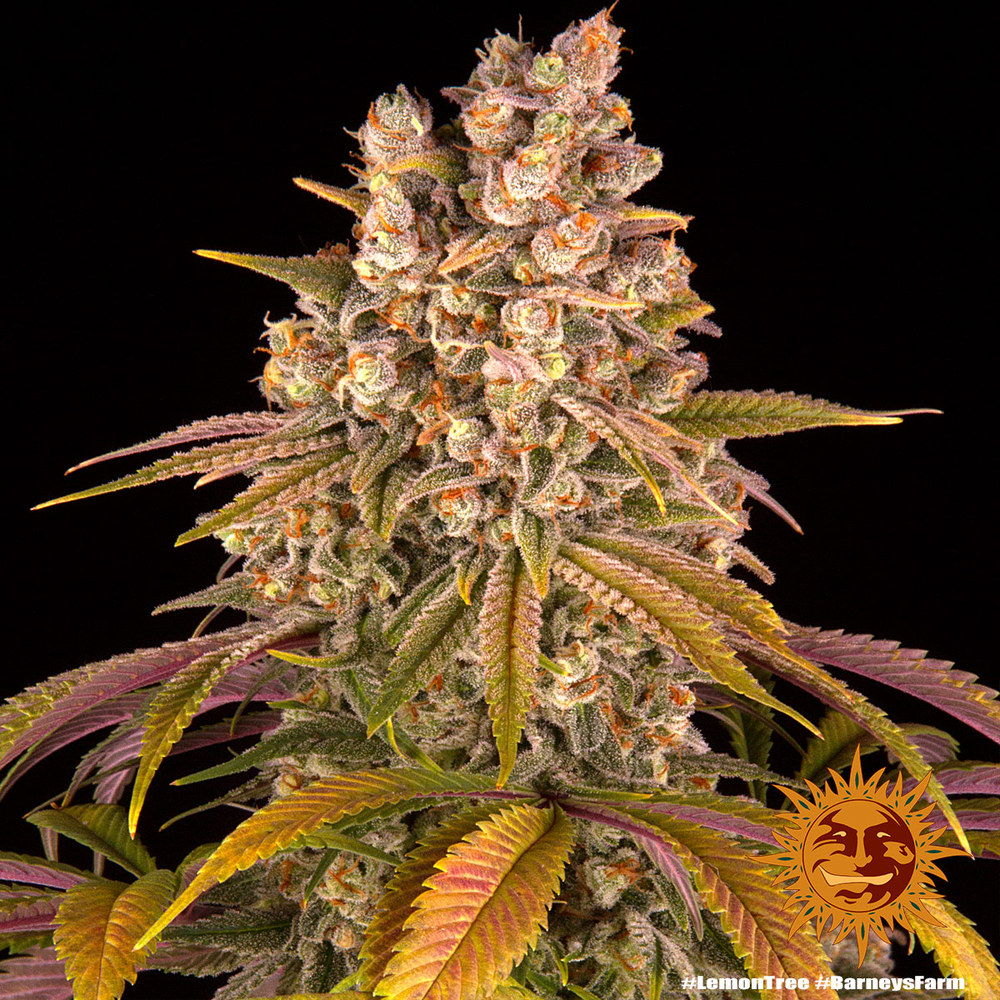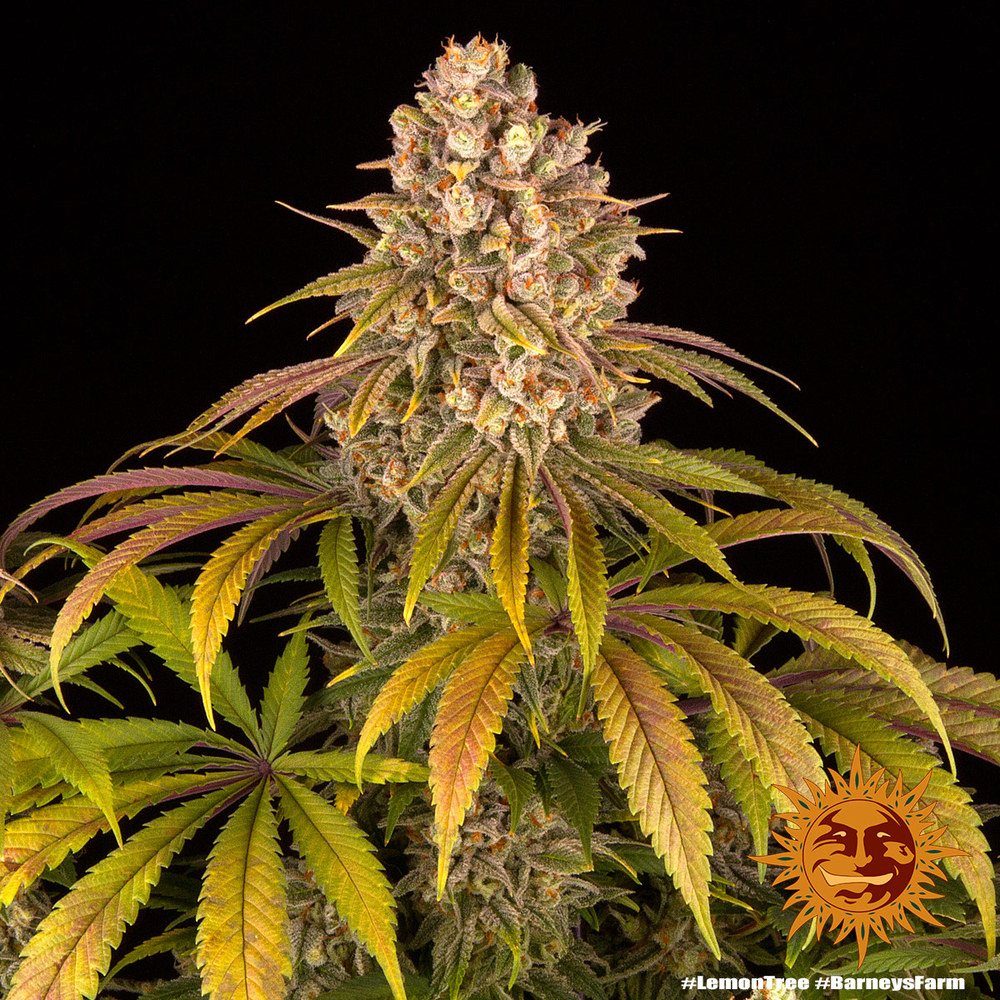Lemon Tree Strain
Lemon Tree Strain by Barneys Farm
A hybrid resulting from the cross of Lemon Skunk and Sour Diesel. It presents a strong lemon aroma with diesel undertones.
This strain offers balanced effects with mental stimulation and body relaxation. THC levels of 26%. Indoor plants reach 90-100 cm with a potential yield of up to 600-700g/m².
Lemon Tree Cannabis Seeds - Type: Feminized Weed Strain

Lemon Tree strain by Barney's Farm
Lemon Tree Strain is an award-winning combination of the US classics Lemon Skunk & Sour Diesel oozing with deliciously high levels of Limonene and Myrcene.
This easy-growing, perfectly balanced 55% Indica hybrid delivers significant yields of succulent, compact, frosty, light-green buds laced with a thick coating of trichomes releasing fresh, lemony, citrussy aromas—a real sensory pleasure to grow.
Lemon Tree Strain grows well indoors utilising low-stress techniques, this plant reaches final heights of around 90-100 cm, with an output of up to 650 g/m², after a relatively short flowering period of just 65-70 days.
Outdoors, with a longer time to evolve, Lemon Tree can reach up to 2 meters and yield up to 1.5 kg per plant, finishing from the middle to the end of October.
Once cured, savour the pungent Super Skunk and sour lemon aromas due to its high levels of terpenes; its refreshing, sharp, tangy lemon and diesel undertones make this strain incredibly unique, keeping you lifted and joyful whatever you do throughout the day.
Lemon Tree Cannabis Seeds Specification:
|
|
Lemon Skunk x Sour Diesel |
|
|
26% |
|
|
FEMINISED |
|
|
45 |
|
|
55 |
|
|
Fresh Lemons, Tropical, Sour, Citrus |
|
|
Happy, Relaxing, Euphoric |
|
|
Sour, Lemon, Skunky, Diesel |
| Height Indoor (cm) | 90-100cm |
| Indoor Yield (g) | 600-700 gr/㎡ |
| Flowering Time (days) | 65 - 70 |
| Height Outdoor (cm) | 150-200cm |
| Outdoor Yield (g) | 1500 gr/plant |
| Harvest | OCTOBER - 3rd-4th week |
Lemon Tree FAQs
Is Lemon Tree Indica or Sativa?
The Lemon Tree strain by Barneys Farm is 45% Sativa 55% IndicaWhat is the best way to store my Lemon Tree seeds?
To properly store Lemon Tree seeds, it is recommended to keep them cool and dark in an airtight container, ideally in a refrigerator with proper labelling and dating, avoiding freezing.
What is the best method to germinate Lemon Tree strain seeds?
There are numerous techniques for germinating Lemon Tree cannabis seeds if it is allowed in your location. The paper towel method is a common method in which the Garlic Cookies seeds are placed on a damp paper towel and covered with another damp paper towel to keep them moist. After that, keep the paper towel in a warm, dark spot and check on it every day to ensure that it remains moist. When the Lemon Tree seeds have germinated, gently place them in soil or similar growth media.
What is the best temperature for germinating Lemon Tree cannabis seeds?
Lemon Tree Cannabis seeds germinate in temperatures from 70°F to 90°F (21°C to 32°C). Temperatures below 70°F (21°C) and above 90°F (32°C) can prevent or compromise healthy germination. Low temperatures delay or even stop germination. High temperatures can cause poor germination, and stunted or slow growth also increases the possibility of seedlings drying out.
How deep should I plant sprouted Lemon Tree seeds?
Once germinated, transfer them to soil or similar growth media, making a small hole 5-10mm deep with a match or pen. Gently place the sprouted seed root down in the hole. Avoid handling seeds with your hands; use a match or similar tool to position them.
Should I plant my seedlings in their final pots / In the ground outdoors?
No! By carefully transitioning your seedlings from small pots to larger containers, you can ensure your Lemon Tree plants develop strong, healthy roots that support vigorous growth. Smaller pots dry out more quickly, which is beneficial early in the plant's development. This encourages the roots to spread in search of moisture and nutrients. As the root structure starts to fill the pots, incrementally increasing the pot size continually stimulates new root growth, allowing for ongoing, more precise watering and nutrient uptake.
Lemon Tree cannabis seeds are sold strictly for souvenirs, storage, and genetic preservation.


